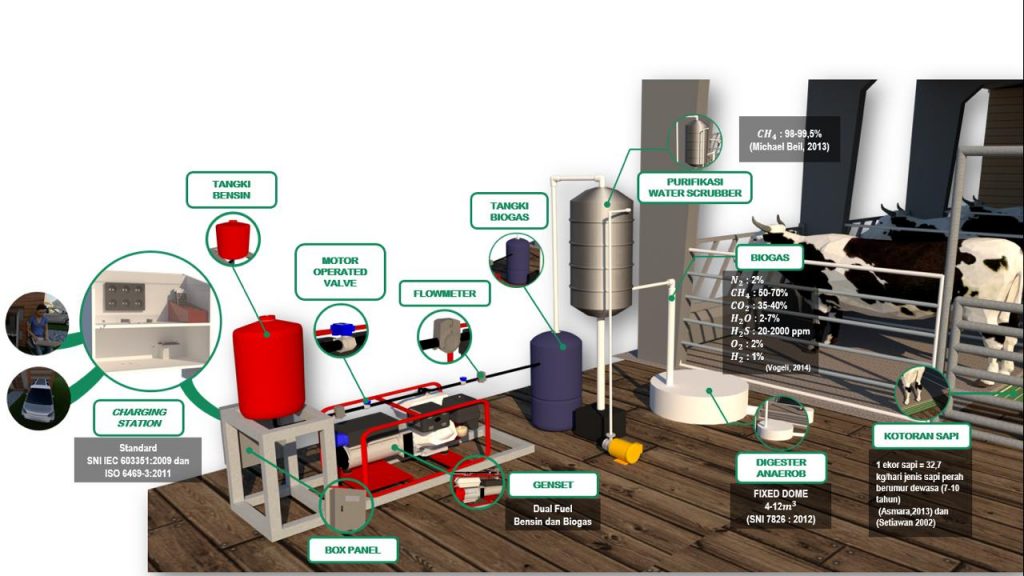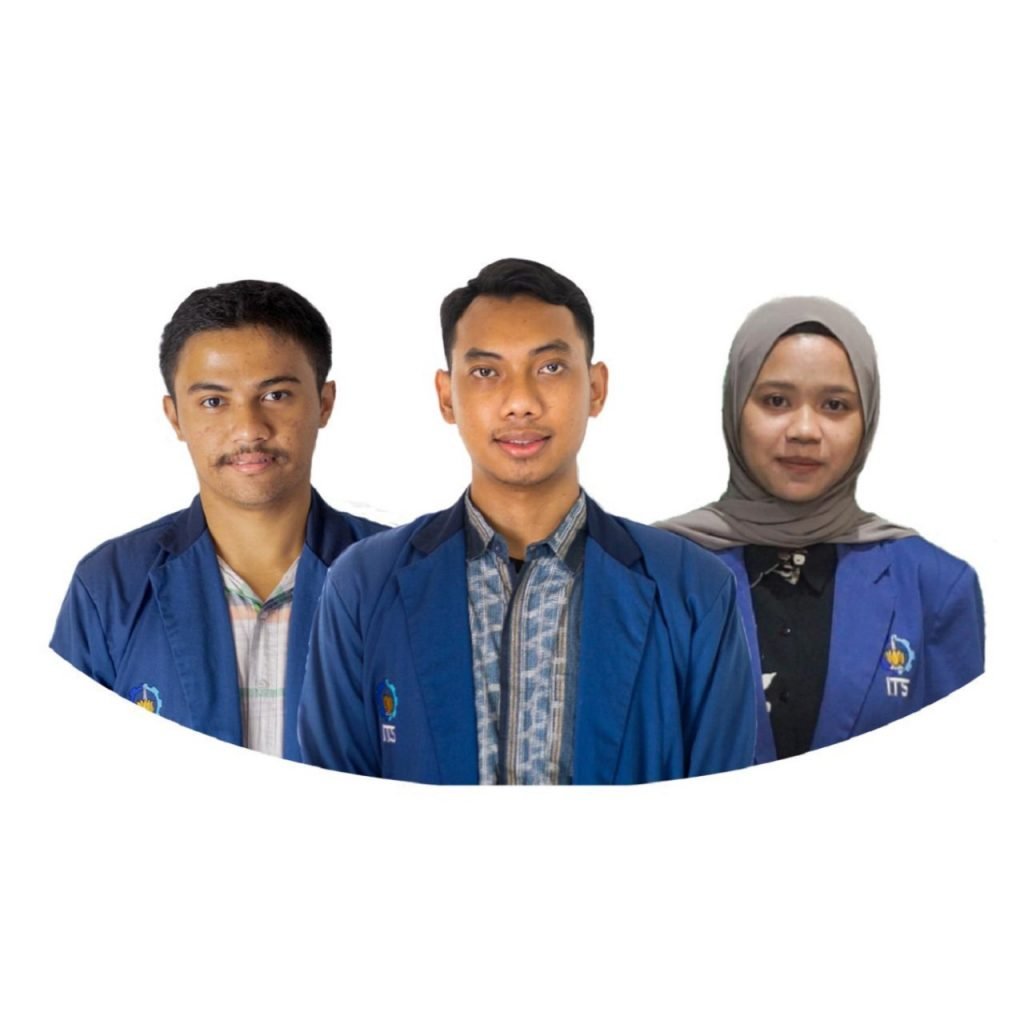ITS Students Innovation to Use Biomass as an Electric Charger

The illustration of biomass utilization design with biogas type is a charging station as an electric charger.
ITS Campus, ITS News – The biogas-type biomass sources from cow dung in Indonesia are very abundant, but their use is still limited to household gas materials. Seeing this great opportunity, the student team of Institut Teknologi Sepuluh Nopember (ITS) succeeded in initiating the use of a biogas energy source in the form of a charging station for charging batteries.
They are Muhammad Nidhommuddin, Badar Hasjim, and Gita Marcella, who successfully designed a charging station for electronic devices using this renewable energy. The charging station developed by the Department of Instrumentation Engineering students is expected to meet future electricity needs in Indonesia. They are starting from charging electric vehicle batteries to supplying household electricity such as lamps, refrigerators, televisions, devices, etc.
Nidhommuddin, as the team leader, said that the biogas type of biomass from cow dung is still very abundant with the potential for cows in Indonesia which reaches 15 million heads. However, its utilization is still limited to household gas, resulting in a large surplus. “If it is disposed of, the methane gas contained therein can endanger the surrounding environment and human health. Therefore it is necessary to use it,” said the student called Nidhom.
According to Nidhom, one of the uses is to generate electricity. Nidhom explained that biogas could produce 2.4 gigawatts of electrical energy if it is appropriately utilized. “This is in line with the rise of electric vehicles in Indonesia and also as our effort to reduce the use of fossil energy,” he said.
Furthermore, Nidhom explained how the stages of using cow dung could become electrical energy. Initially, cow dung is put into the reactor and mixed with water at a one-to-one ratio. Then the mixture is stored for 10 to 40 days, producing biogas.

(from left) Badar Hasjim, Muhammad Nidhommuddin, and Gita Marcella
Furthermore, the biogas will go into the purification process to obtain pure biogas with a 98 to 99.5 percent methane gas content. “This pure biogas will be used as an energy source in the generator so that the generator can generate electricity which is used for electrical charging,” said Nidhom.
Unlike charging stations in general, the team’s design that is part of the Program Kreativitas Mahasiswa – Karsa Cipta (PKM-KC) 1 has several advantages. These advantages include a ratio control system between gasoline and biomass types of biogas, an Internet of Things (IoT) system. They can overcome the shortcomings of the usual charging stations that still use solar energy through solar cells.
“The weather in Indonesia is uncertain. Sometimes it rains, and sometimes it is hot, then there is the influence of time, day and night, resulting in the need for a large enough land to meet the desired power when using solar energy,” explained Nidhom.
Thanks to their creative idea, Nidhom and his team managed to bring home a bronze medal at the Pekan Ilmiah Mahasiswa Nasional (Pimnas) poster category. Pimnas is one of the most prestigious scientific writing and creativity competitions in Indonesia. He is grateful to bring the honor to the campus and expresses his gratitude to Arief Abdurrakhman ST MT as the lecturer who has guided his team.
Nidhom hopes that renewable energy, especially biogas from cow dung, can be used optimally and can support electric vehicles in Indonesia. “Hopefully, our idea can be applied and can overcome problems related to reducing the use of fossil energy,” he hoped. (meg/sel/ITS Public Relations)
Related News
-
ITS Wins 2024 Project Implementation Award for Commitment to Gender Implementation
ITS Campus, ITS News —Not only technology-oriented, Institut Teknologi Sepuluh Nopember (ITS) also show its commitment to support gender
December 30, 2020 16:12 -
ITS Professor Researched the Role of Human Integration in Sustainable Architecture
ITS Campus, ITS News –The developing era has an impact on many aspects of life, including in the field
December 30, 2020 16:12 -
ITS Sends Off Group for Joint Homecoming to 64 Destination Areas
ITS Campus, ITS News — Approaching Eid al-Fitr, the Sepuluh Nopember Institute of Technology (ITS) is once again facilitating academics who want
December 30, 2020 16:12 -
ITS Expert: IHSG Decline Has Significant Impact on Indonesian Economy
ITS Campus, ITS News — The decline in the Composite Stock Price Index (IHSG) by five percent on March 18,
December 30, 2020 16:12
